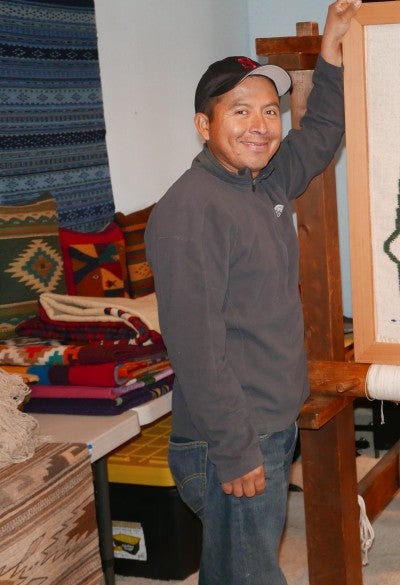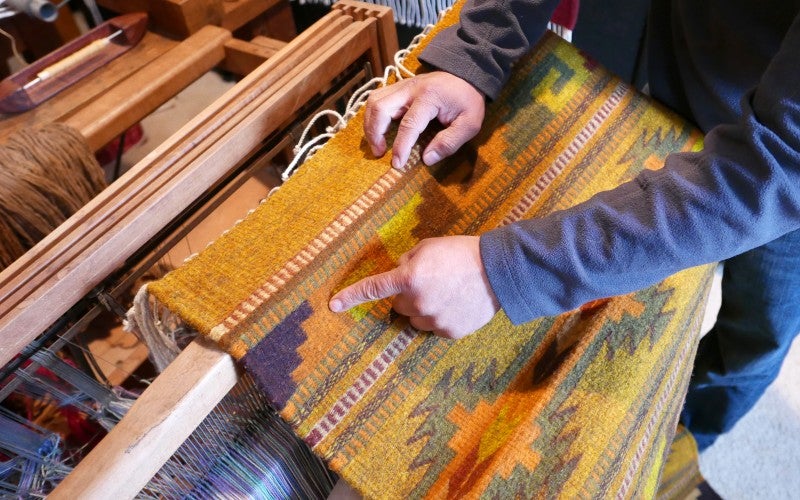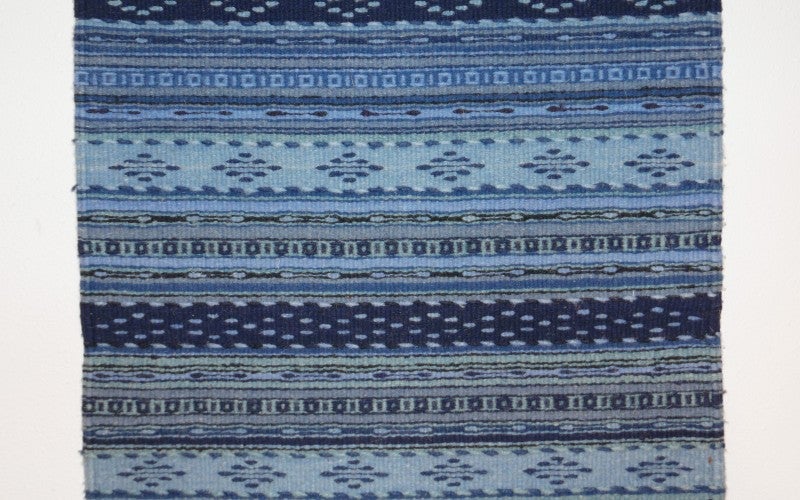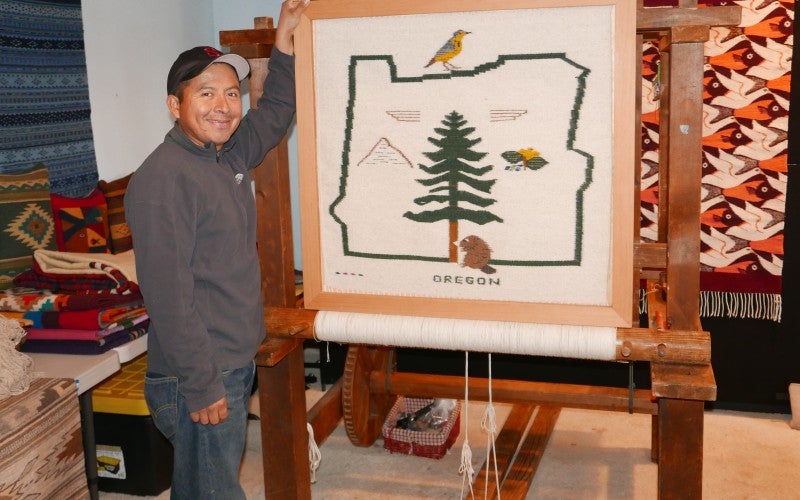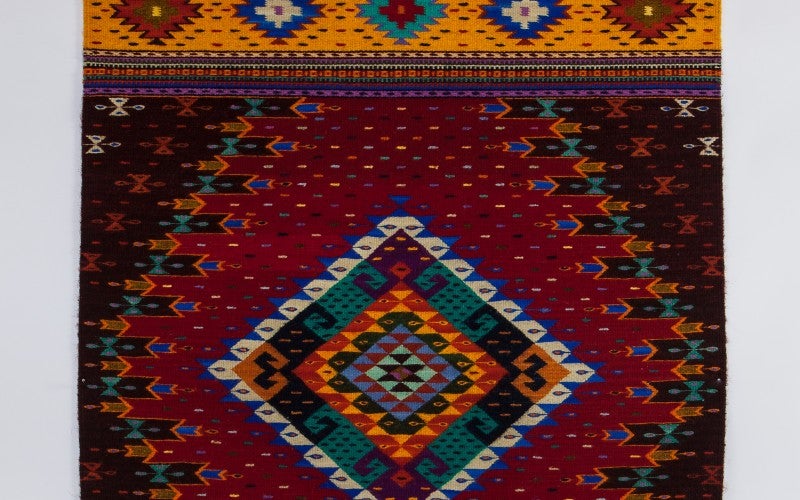Francisco Bautista (Sandy) is a fourth generation Zapotec weaver from Teotitlán del Valle, a small village outside of Oaxaca City, Mexico renowned for its handcrafted textiles. Under the tutelage of his father, Bautista began learning his craft at age seven.
Bio
Francisco Bautista is a fourth generation Zapotec weaver from Teotitlán del Valle, a small village outside of Oaxaca City, Mexico renowned for its handcrafted textiles. He first learned how to weave from his father, who would “sit with me at his loom and show me the rhythm and beauty of weaving.” Starting by winding the bobbins with yarn and progressing to tying the rugs’ fringes, Bautista worked by his father's side as he learned to create a clean, finished product. He also learned the traditional practice of spinning yarn, an intensive and time-consuming process. Now an Oregon resident, Bautista lives just outside of Sandy with his wife and two children. He keeps the ancient Teotilán del Valle tradition alive by weaving rugs that incorporate traditional Zapotec symbols. He also embellishes those symbols, which originate from pre-Columbian Oaxacan culture, with his own motifs. In addition to modifying traditional patterns and creating his own designs, Bautista integrates patterns from the Navajo weavers of the American Southwest. Like his father before him, Bautista also makes many of his own dyes; he collects onion skins and marigold and imports ingredients for other colors. He crushes those materials to extract their pigments. For Bautista, the mind plays an important role in the creative process, but it is the heart that brings forth the true inspiration for his art. He believes there is a connection between the weaving—both the act of creation and the product itself—and those destined to receive the work. Today, when he begins to weave, Bautista makes the sign of the cross at each corner of the loom. “God let me weave something someday a person will buy from me,” he says, “and he will take part of my family, part of my ancestors, with [him].”


